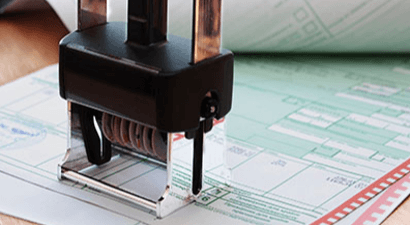SECTION 114: IS IT A CIVIL JUDGMENT?
When someone receives a letter of demand (“LOD”) from SARS demanding, inter alia, payment of duties and penalties in terms of the Customs & Excise Act 91 of 1964 (“CEA”), the amount demanded by SARS becomes a debt to the State and is payable, irrespective of whether the aggrieved person appeals the matter or not.
Section 114 of the CEA states that any amount of duty, interest, penalty, or forfeiture which is payable is a debt due to the State and shall be recoverable by the Commissioner.
SARS employs the ‘pay now argue later’ principle, however, section 77G states that the obligation to pay to the Commissioner and right of the Commissioner to recover any amount demanded, shall not, unless the Commissioner directs, be suspended. Essentially what this means is that the amount demanded by SARS is payable unless SARS agrees to suspend the debt.
If the recipient of the LOD would like to have the debt suspended, he (or she) has to prepare a fully motivated request to SARS which must be supported by various documents including three months bank statements. SARS will review the applicant’s request as well as the applicant’s tax affairs before deciding if it will suspend the debt.
As was the case for Naushaad Hamid in Naushaad Hamid v South African Revenue Services (3280/2017) [2021] ZAKZNDHC (30 November 2021), the suspension application was denied, with SARS citing outstanding tax returns as one of the reasons for the denial.
Another option available to those in SARS’ debt, is to provide SARS with security for the debt pending the appeal process.
If the debt has not been suspended; secured or paid, SARS may employ various collection methods, including placing a lien on the debtor’s assets, appointing a third-party collection agent, and filing a debt management certified statement with the High Court Registrar, resulting in a civil judgment.
In Naushaad Hamid, SARS approached the court and took judgment against Naushaad Hamid. In response, Hamid approached the High Court to have the judgment rescinded. The Court found that since Section 114 allows the Commissioner to withdraw the debt management statement at any time, the ‘judgment’ does not have the final effect of a civil judgment and is not determinative of the parties’ rights. Since the ‘judgment’ was not considered final, it therefore could not be rescinded by the Court. The Court stated that “there is a public interest element in obtaining the full and speedy settlement of a tax debt, and the mechanisms employed by SARS serve a public interest to have tax and other revenue debts collected swiftly” further underpinning SARS’ ‘pay now argue later’ principle.
In Karino Homeland Distribution (Pty) Ltd v Commissioner for the South African Revenue Service (21279/2023) [2023] ZAWCHC 329 (27 December 2023), SARS opted to place a lien over Karino’s assets to secure the debt. Karino approached the Court seeking a partial upliftment of the lien since the value of the goods over which the lien was placed far exceeded the amount demanded by SARS.
SARS argued that there is no requirement in the CEA that the lien must be exercised only over property matching the value of the debt, stating that it is the “goods which are subject to a lien and not the value of the goods.” The Court supported this view stating that it appreciated the fact that Karino wanted to trade in order to remain commercially viable, but it opted to support the lien stating that Karino must pay its taxes.
SARS may prefer to avoid the administrative issues attached to a civil judgment or a lien, and instead appoint an entities customer or bank as a collection agent. Section 114AA grants SARS the power to declare any person to be the agent of another. The agent will be liable to SARS for payment of the debt imposed on the entity. If SARS appoints the bank as the agent, the bank would simply pay any monies available in the entities bank account over to SARS. If SARS appoints the customer as agent, the customer would have to make payment of any amounts owed to the entity to SARS instead until the entities debt to SARS has been settled.
It is clear from the above, that SARS has extremely wide powers when it comes to the collection of revenue, and the courts appear to support SARS’ actions. If you receive a LOD from SARS which you intend appealing, swift action must be taken to avoid SARS taking collection steps against you.





